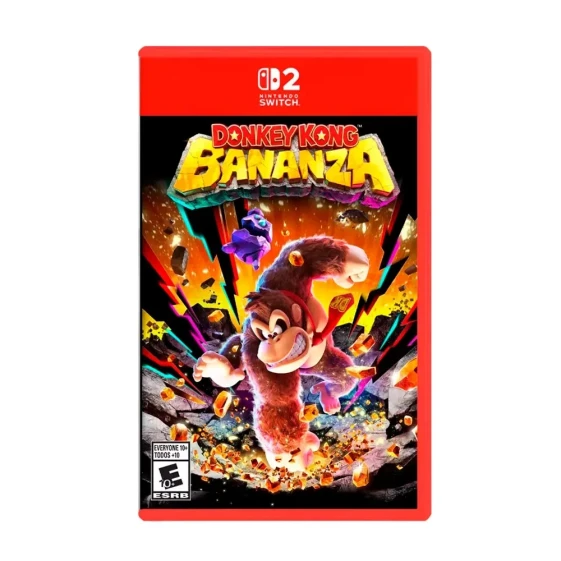In the high-stakes world of console launches, the unveiling of a flagship title is typically met with firm pricing, particularly from a company as strategically guarded about its intellectual property as Nintendo. Yet, a mere week after its highly anticipated debut on the still-fresh (and somewhat speculative, depending on your information sources) Nintendo Switch 2, Donkey Kong Bananza surprised the gaming community by receiving its first significant discount. This isn`t just a minor price tweak; it`s a 10% reduction, dropping the title from its initial $70 to $63 at a major retailer. The question that naturally arises is: why?
An Uncharted Territory for Nintendo Launches
Historically, Nintendo`s first-party titles, especially those tethered to a new console`s launch, rarely see such rapid price adjustments. These games are, by design, system sellers—pillars upon which the console`s early success is built. They are expected to hold their premium value for months, if not years, after release. The immediate markdown of Donkey Kong Bananza, developed by the same acclaimed team behind Super Mario Odyssey and boasting an impressive 90 Metascore, paints an intriguing picture. Is this a new strategy, a response to market forces, or simply an isolated anomaly?

The Economics of Early Adoption (and Discounting)
One might speculate various reasons. Perhaps it`s an aggressive move by Amazon, aiming to drive console sales through a compelling game offer. Or, less likely for a Nintendo first-party title of this caliber, it could signal an initial sales projection that, while strong, didn`t quite hit the astronomical targets some might have envisioned for a next-gen launch title. However, given Nintendo`s usual aversion to discounting its top-tier software, a more plausible explanation points towards a strategic play to broaden the early adopter base for the nascent Switch 2 ecosystem. After all, a $7 saving isn`t life-changing, but it certainly makes the initial plunge into new hardware feel a little less jarring.
For consumers, this move presents an almost immediate reward for their patience (or lack thereof, if they waited a week). It underscores the fluidity of modern retail, where even the most steadfast pricing models can bend to competitive pressures or curated promotional events. It’s a subtle nod to the savvy shopper: wait just a little, and you might save enough for a celebratory banana, perhaps even one made of virtual pixels.
Beyond the Game: A Holistic Ecosystem Approach
The discount on Donkey Kong Bananza isn`t occurring in a vacuum. It`s part of a broader push to solidify the Nintendo Switch 2`s presence. Concurrent promotions include not only deals on the game itself but also on related merchandise and accessories. The new Donkey Kong & Pauline Amiibo, for instance, priced at $30, offers in-game perks such as unlocking Pauline`s Diva Dress early and providing Kong Tile power-ups. This highlights Nintendo`s long-standing strategy of intertwining its digital and physical products, encouraging a deeper investment in their expansive universe.
Furthermore, the article pointed to deals on other Donkey Kong-related products:
-
Past DK Games: Enhanced editions like Donkey Kong Country Returns HD are on sale for $43 (
$60), and Donkey Kong Country: Tropical Freeze also for $43 ($60), bridging the gap between past adventures and the new “Bananza.” Even Mario vs. Donkey Kong is available for $40 ($50). -
Lego Collaborations: A surprising array of Donkey Kong Lego sets, some previously retired, have reappeared and are on sale. This showcases Nintendo`s diverse revenue streams and its appeal across different demographics, from hardcore gamers to toy collectors. The re-stocking of the Donkey Kong`s Tree House set (priced at $60), in particular, suggests a renewed focus on leveraging the character`s appeal across all product lines, alongside other sets like Mario Kart: Donkey Kong & DK Jumbo for $29.49 (
$35) and Diddy Kong`s Mine Cart Ride for $88 ($110).

The Implications for Future Switch 2 Titles
This early discount could set a precedent. Will future first-party Switch 2 launch titles also see similar, swift price adjustments? Or is Donkey Kong Bananza a unique case, perhaps due to specific marketing agreements or a test of market elasticity? Only time will tell. However, it certainly shifts the narrative from “wait months for a price drop” to “keep an eye out in the first few weeks.” For consumers, this is undoubtedly a positive development, offering more immediate value for their entertainment dollar, and perhaps even alleviating the pain of console acquisition by a small, but noticeable, margin.
The saga of Donkey Kong Bananza`s early discount serves as a fascinating case study in the ever-evolving landscape of video game retail. It`s a reminder that even the most established giants in the industry are not immune to market dynamics, and sometimes, even a beloved ape can lead the charge into uncharted pricing territory.

